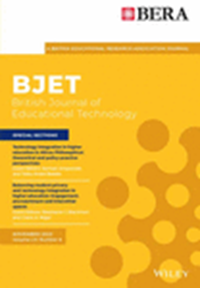The impact of generative AI on academic integrity of authentic assessments within a higher education context
Abstract
Generative AI (hereinafter GenAI) technology, such as ChatGPT, is already influencing the higher education sector. In this work, we focused on the impact of GenAI on the academic integrity of assessments within higher education institutions, as GenAI can be used to circumvent assessment approaches within the sector, compromising their quality. The purpose of our research was threefold: first, to determine the extent to which the use of GenAI can be detected via the marking and moderation process; second, to understand whether the presence of GenAI affects the marking process; and finally, to establish whether authentic assessments can safeguard academic integrity. We used a series of experiments in the context of two UK-based universities to examine these issues. Our findings indicate that markers, in general, are not able to distinguish assessments that have had GenAI input from assessments that did not, even though the presence of GenAI affects the way markers approach the marking process. Our findings also suggest that the level of authenticity in an assessment has no impact on the ability to safeguard against or detect GenAI usage in assessment creation. In conclusion, we suggest that current approaches to assessments in higher education are susceptible to GenAI manipulation and that the higher education sector cannot rely on authentic assessments alone to control the impact of GenAI on academic integrity. Thus, we recommend giving more critical attention to assessment design and placing more emphasis on assessments that rely on social experiential learning and are performative rather than output-based and asynchronously written.
Practitioner notes
What is already known about this topic
- GenAI has enabled students to complete higher education assessments quickly and with good quality, leading to challenges in academic integrity.
- GenAI has transformed the requirements and considerations in assessment design in higher education.
- Authentic assessments are seen as a prominent way to tackle the GenAI challenge.
What this paper adds
- We provide quantitative and qualitative experimental evidence suggesting that GenAI can generate authentic assessments that pass the scrutiny of experienced academics.
- We demonstrate how the use of authentic assessments alone does not protect the academic integrity of students in higher education.
- Our qualitative analysis indicates that markers may generate false positive and false negative results if they suspect GenAI tampering in an assessment. Thus, students' learning is not assessed correctly.
Implications for practice and/or policy
- When universities and national organisations design policies regarding GenAI, authentic assessments are not the panacea; the focus must remain on assessment design.
- Assessments of learning need to shift from assessing output to focusing on process and relevance to the workplace. That would mean a paradigmatic shift from written assessments to synchronous interpersonal assessments.
- The move away from written assessments has implications that are far reaching for the academy if written assessments cannot be trusted as a reliable indicator for and of learning.


 求助内容:
求助内容: 应助结果提醒方式:
应助结果提醒方式:


